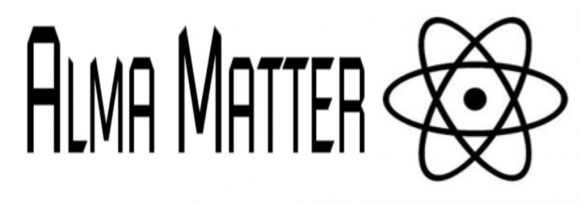Hello Science People and all Tribespeople of William & Mary,
It’s time for another year and another round of posts with Alma Matter! Welcome back everybody! I’d like to kick off this series with an ode to the single facet of technology that has advanced my science career the most…
…. the email.
This is so obvious; of course I owe the email so much. Everyone owes the email so much, we use it every day. I’m referring to a specific kind of email, the uncomfortable cold email. The email you send to a complete Dr. Stranger who has been in the science game for so long, who is definitely up to wildly important and intricate business that is clearly a higher priority than anything that has ever crossed the mind of an undergrad. These cold emails can be made to accomplish a number of useful goals, but the act of pressing send for an email destined to a server that rests on a mahogany desk in a prestigious research institution is daunting. But, when that fear is met, the email becomes a universal foot-in-the door for every enterprising, freelance researcher looking for an interesting opportunity in science. Almost every lab in the world has a website with the emails of the top brass in that department, you have your W&M email, and there is no barrier to correspondence between you and the principal investigator of a lab that’s doing really cool things.
The potential for useful knowledge and experiences instigated by these cold emails is usually proportional to the trepidation you feel at the idea of contacting that professional scientist. These lines of communication can lead to internships, useful lab techniques, career advice, opportunities for observation, and access published articles from journals that the W&M library database does not subscribe to, among so many other things. Science is about advancing the collective, human understanding of the natural world, and most scientists agree, which means that people can be extremely generous with their knowledge in any scientific field.
What I find interesting is that, in my experience, a lot of my peer undergraduate scientists (a lot of them just as, or more, knowledgeable as I) don’t realize that this perpetually open and rich channel of communication is open for their use, too. I believe this hesitation is because many young scientists don’t view their work as something that is advancing science. Many of us think that because our work is mainly intended to refine our personal understanding and skill, it must be completely irrelevant to the rest of the scientific world. This is a pure misconception; your principal investigator’s goal for you is indeed to become better versed in the process of science, but they probably wouldn’t make you do something that is actually pointless. That would be a waste of everyone’s time and money. Your research is important, and if there is an experience or wellspring of knowledge that is out there, not within reach of this campus, but certainly within that of the Internet, you should send one out. You have nothing to lose. Just make sure you have a nice gmail account picture that features your face and a professional-ish automatic signature that somehow proves your relevance to science. And get to the point quickly.
I wrote this obvious article because in reflection of my spring 2016 semester and summer 2016, all of my most exciting and enriching experiences were the result of cold emails. A semester at the National Institutes of Health. A trip to a neuroscience conference in Denmark. A week at the Allen Brain Institute. These are just the big flashy things; I also have to mention the protocols, career advice, and rare articles that have been so useful to the completion of my honors thesis that also came from nice scientists in high places. I have been rejected from so many things that I’ve applied for, but the cold email has always yielded a bone or two thrown in my direction.
I challenge you all to send a handful of these to researchers you admire at some point in the near future. I’m saying this at my own peril, because what makes the cold email so effective is that people are usually too afraid to go for it, so as all of you talented researchers implement the cold email strategy, my cold emails become less special. Womp womp. Just kidding. There is so much out there to explore, and so much generosity in the scientific community, that all of us will benefit from more young investigators overcoming fear with scrappiness.

